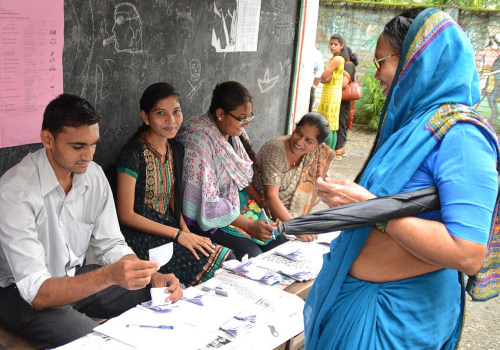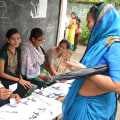As election season approaches, candidates across the United States are gearing up for their campaigns. And in Mobile County, Alabama, one of the largest counties in the state, candidates are faced with the unique challenge of reaching out to voters in rural areas.With a population of over 400,000 people spread across 1,644 square miles, Mobile County is a diverse and sprawling region. While the city of Mobile itself is a bustling urban center, much of the county is made up of small towns and rural communities. And when it comes to election campaigns, these rural areas can often be overlooked or neglected.
The Importance of Rural Voters
Despite being a minority in terms of population, rural voters play a crucial role in elections.In fact, in the 2016 presidential election, rural voters made up 17% of the total electorate and played a significant role in determining the outcome. But why are rural voters so important? For one, they tend to have higher voter turnout rates compared to urban areas. This means that their votes carry more weight and can make a significant impact on the outcome of an election.
Rural voters
also tend to have different priorities and concerns compared to their urban counterparts. Issues such as agriculture, land use, and access to healthcare are often top of mind for those living in rural areas. Therefore, it is crucial for candidates to reach out to these voters and address their specific needs and concerns.Challenges of Reaching Rural Voters
One of the main challenges that candidates face when trying to reach rural voters is the sheer size and spread-out nature of these communities.Unlike urban areas where large populations are concentrated in a small area, rural areas are often spread out over a large geographic region. This makes it difficult for candidates to physically reach all of these areas and connect with voters. Another challenge is the lack of access to technology and internet in many rural areas. This means that traditional methods of campaigning, such as social media and online advertising, may not be as effective in reaching these voters. Candidates must find alternative ways to connect with rural voters who may not have access to the same resources as their urban counterparts.
Strategies for Reaching Rural Voters
So how can candidates effectively reach out to voters in rural areas of Mobile County, Alabama? Here are some strategies that can help:1.Door-to-Door Campaigning
While it may seem old-fashioned, door-to-door campaigning is still one of the most effective ways to reach rural voters.By going directly to their homes, candidates can have one-on-one conversations with voters and address their concerns and issues. This personal touch can go a long way in building trust and gaining support from rural voters.
2.Attending Local Events
Rural communities often have close-knit social networks and hold regular events such as fairs, festivals, and community gatherings. Candidates should make an effort to attend these events and engage with voters in a more casual setting. This allows them to connect with voters on a personal level and understand their needs and concerns.3.Utilizing Local Media
In rural areas, local media outlets such as newspapers and radio stations are often the main source of information for residents.Candidates should take advantage of these platforms to reach out to rural voters. By placing ads or being featured in local news stories, candidates can increase their visibility and get their message across to a wider audience.
4.Partnering with Local Organizations
Rural communities often have strong ties to local organizations such as churches, community centers, and civic groups. Candidates can partner with these organizations to reach out to voters and gain their support. This can also help candidates better understand the needs and concerns of these communities.5.Addressing Rural-Specific Issues
As mentioned earlier, rural voters often have different priorities and concerns compared to urban voters.Candidates must make an effort to address these issues and show that they understand the unique challenges faced by those living in rural areas. This can help build trust and credibility with rural voters.






